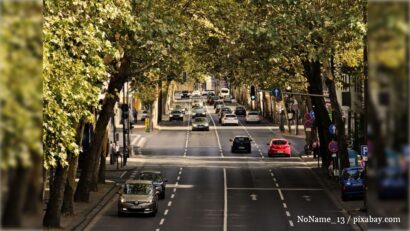Changes in Criminal Legislation
Criticized by the president, the amendments to the Criminal Code and the Criminal Procedure Code were adopted by the Senate and will be submitted to the Chamber of Deputies for debate, the decision-making body in this case.

Newsroom, 12.05.2015, 13:37
Romanias president Klaus Iohannis on Friday said the amendments to the Criminal Code and the Criminal Procedure Code are “valueless “, criticizing this initiatives and arguing that anti-corruption efforts should be stepped up. This Monday, however, the Senate adopted the Governments bill to amend the two codes. Also on Monday, following the debate and the secret ballot, the Senators green lighted an amendment aimed at replacing the “reasonable doubt provision in the current regulations with “sound proof and evidence attesting that someone committed an offense mentioned as such by the criminal law, in the case of detention, conditional release, conditional bail, home arrest and pretrial arrest actions in criminal investigations.
Advocates of this change say the new provision is closer to the well-established principle according to which non-custodial investigation is the norm, while the pre-trial arrest is the exception. Liberal Senator Nicolae Vlad Popa, in the opposition, has criticized this amendment, saying he cannot agree to such a radical change brought to the pretrial arrest system.
“There is no such provision in any European Criminal Procedure Code in the EU. If the prosecutor has reasonable doubt, the offender can be put on trial within 24 hours. Solid evidence must be provided during the trial but ‘reasonable doubt is enough for a judge to sign an arrest warrant.
In turn, Social-Democrat senator Ioan Chelaru, one of the people who spearheaded the project, says the amendment refers to freedom, a fundamental right.
“When placing a person under arrest, be it pre-trial or not, the prosecutor and the judge must make this decision based on their own individual assessment, as well as on other criteria than can be determined.
Another covert amendment refers to the fact that suspects placed under arrest should be enchained only if they are being investigated for a violent crime. According to prime minister Victor Ponta, Mondays vote in the Senate is the expression of an overwhelming majority, as 88 voted in favor and only 20 against, which means that all parliamentary factions have supported the amendments. Victor Ponta believes the changes will not prevent prosecutors from documenting pending cases, while only those people who display violent behavior and are a threat to the safety of law-enforcement officers should be handcuffed. The draft criminal procedure code will be submitted for debate to the Chamber of Deputies, the decision-making body in this case.






























